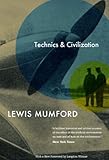Technics and civilization
Material type: TextPublication details: London : University of Chicago Press, ©2010Description: xxvii, 495 p. ; 23 cmISBN:
TextPublication details: London : University of Chicago Press, ©2010Description: xxvii, 495 p. ; 23 cmISBN: - 9780226550275
- 303.483 MUM-T
| Item type | Current library | Collection | Call number | Status | Date due | Barcode | Item holds |
|---|---|---|---|---|---|---|---|
 Books
Books
|
IIITD General Stacks | Sociology | 303.483 MUM-T (Browse shelf(Opens below)) | Available | 013523 |
Browsing IIITD shelves, Shelving location: General Stacks, Collection: Sociology Close shelf browser (Hides shelf browser)

|

|

|

|

|

|

|
||
| 303.48 SRI-W Whose global village? : | 303.48 TIL-S Social movements, 1768-2018 | 303.483 KIT-D Digital timescapes : technology, temporality and society | 303.483 MUM-T Technics and civilization | 303.483 SCA-S Social epistemology and technology : | 303.483 SMI-T Tools and weapons : | 303.4833 BUC-I If...then : |
Includes bibliographical references and index.
1. Cultural preparation
2. Agents of mechanization
3. The eotechnic phase
4. The Paleotechnic phase
5. The Neotechnic phase
6. Compensations and reversions
7. Assimilation of the machine
8. Orientation
'Technics and Civilization' first presented its compelling history of the machine and critical study of its effects on civilization in 1934 - before television, the personal computer, and the Internet. Drawing upon art, science, philosophy, and the history of culture, Lewis Mumford explained the origin of the machine age and traced its social results, asserting that the development of modern technology had its roots in the Middle Ages rather than the Industrial Revolution. Mumford sagely argued that it was the moral, economic, and political choices we made, not the machines that we used, that determined our then industrially driven economy. Equal parts powerful history and polemic criticism, 'Technics and Civilization' was the first comprehensive attempt in English to portray the development of the machine age over the last thousand years - and to predict the pull the technological still holds over us today.
Collapse summary


There are no comments on this title.